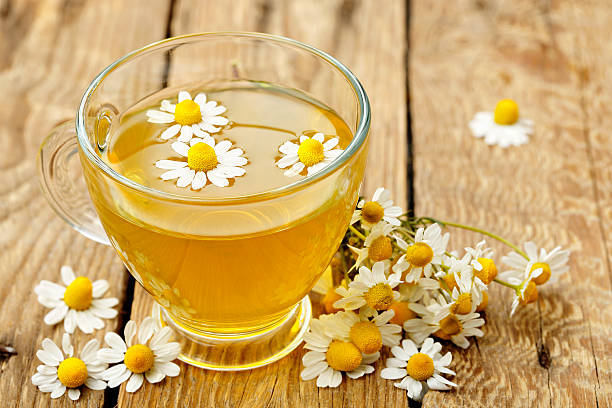Supplements and Herbs
Top Herbs to Soothe and Calm Your Brain
Do you constantly feel pressured, anxious, or overwhelmed? If so, you are not alone. In today’s fast-paced society, many of us struggle to find inner calm. So we will talk about the best herbs that can help soothe and calm your brain, leaving you feeling calm and focused.
For hundreds of years, these natural treatments have been used to help people relax and keep their minds healthy. We will talk about the benefits of each plant, from lavender to chamomile, and how they can help you feel more calm and peaceful. If you want to feel the effects of herbs that help calm your brain, come with us as we find out nature’s secret to a happy mind.
Benefits of Using Herbs to Calm the Brain
Herbs have been used for millennia to reduce stress and promote relaxation. Certain herbs, whether by their relaxing scents or potent phytochemicals, have been shown to help calm the brain and improve mental health.
One of the primary benefits of using herbs for brain relaxation is their natural source. Unlike pharmaceutical medications, herbs come from plants and provide a comprehensive approach to mental wellness. They function in tandem with your body to provide a mild and long-term solution for mental relaxation.
Furthermore, herbs tend to have less adverse effects than prescription drugs. While certain herbs may have minor adverse effects or interact with specific drugs, they are generally harmless when used as advised. This makes them a popular choice for people who prefer natural cures or want alternatives to traditional treatments.

Common Herbs To Calm The Brain
When it comes to soothing the mind, certain herbs have lasted the test of time. Let’s look at some of the most often utilized herbs that calm the brain:
Chamomile
Chamomile is well-known for its relaxing qualities. It has been used for millennia to alleviate anxiety, improve sleep, and aid digestion. This herb includes chemicals that interact with brain receptors, reducing stress and promoting relaxation. Chamomile, whether eaten as tea or in essential oil form, has a calming impact on the psyche.
Lavender
Lavender is another prominent herb known for its relaxing properties. Its pleasant perfume has been proved to alleviate anxiety, boost mood, and promote better sleep. Lavender works by influencing the neurotransmitter GABA, which regulates brain activity and promotes calm. Lavender, whether in the form of essential oil, herbal tea, or direct application, can help quiet the mind and soothe the senses.
Lemon Balm
Lemon balm, a member of the mint family, is well-known for its stress-reduction and relaxation properties. This herb includes chemicals that prevent the enzyme that breaks down GABA, resulting in higher quantities of the calming neurotransmitter in the brain. Lemon balm can be ingested as a tea or supplement to help quiet the mind and promote mental health.
Ashwagandha
Ashwagandha, an adaptogenic plant, has been utilized in Ayurvedic therapy for ages. It assists the body in adapting to stress by balancing cortisol levels, lowering anxiety, and encouraging relaxation. Ashwagandha also includes neuroprotective qualities, which promote brain health and cognitive function. Ashwagandha, whether taken as a supplement or as tea, can aid to relax the brain and improve general mental health.

How Herbs Calm the Brain
You may be wondering how these herbs genuinely help to quiet the brain. The explanation is in their bioactive components, which interact with certain receptors and neurotransmitters in the brain.
For example, chamomile includes apigenin, a flavonoid that interacts to benzodiazepine receptors in the brain. This contact helps to relieve anxiety and promotes a sense of peace. Similarly, lavender includes linalool, a terpene that activates GABA receptors, which promotes relaxation and stress reduction.
Lemon balm contains rosmarinic acid, which inhibits the enzyme GABA transaminase while increasing GABA levels in the brain. This, in turn, encourages emotions of calm and relaxation.
In contrast, Ashwagandha regulates cortisol, the stress hormone. Ashwagandha reduces cortisol levels, which helps to relieve anxiety and improve mental well-being.
Herbal Teas for Brain Relaxation
Herbal teas are a popular method to include relaxing herbs into your everyday routine. These teas not only provide a warm and pleasant beverage, but they also deliver the herbs’ therapeutic properties.
To make a herbal tea for brain relaxation, soak a teaspoon or two of dried herbs in boiling water for 5-10 minutes. Strain and savor the calming aroma and flavor. You can also combine other herbs to make custom mixes that are tailored to your specific preferences and demands.
Chamomile, lavender, lemon balm, and ashwagandha tea are some examples of relaxing herbal beverages. Experiment with different combinations to see which ones resonate with you the best.
Topical Applications of Calming Herbs
Calming herbs can be consumed internally and applied topically to benefit from their relaxing qualities. Essential oils, extracts, and lotions derived from soothing herbs can be applied directly to the skin or used for aromatherapy.
For an instant relaxing effect, dilute lavender essential oil with a carrier oil and massage it into the temples or wrists. Lemon balm cream can be applied to the skin to help relieve stress and anxiety. Experiment with different topical solutions to determine which ones work best for you.

Incorporating Calming Herbs into Your Daily Routine
To maximize the relaxing effects of herbs, incorporate them into your everyday routine. Here are some easy ways to do this:
- Start your day with a cup of herbal tea: Sip on chamomile or lavender tea in the morning to set a calm and peaceful tone for the day ahead.
- Take a midday break with a herbal tea break: When you feel stressed or overwhelmed during the day, take a few moments to prepare and enjoy a cup of lemon balm or ashwagandha tea. This can help reset your mind and provide a sense of relaxation.
- Use calming herbs in your skincare routine: Look for skincare products that contain calming herbs like lavender or chamomile. Incorporate them into your daily skincare routine to enhance the overall calming effect.
- Practice aromatherapy: Use essential oils or herbal sachets to infuse your living space with calming scents. Diffuse lavender essential oil or place a sachet of dried chamomile flowers under your pillow to promote better sleep.
By incorporating these simple practices into your daily routine, you can experience the calming benefits of herbs on a regular basis and support your overall mental well-being.
Potential Side Effects and Precautions
While herbs are generally safe when used as intended, it is critical to be aware of any adverse effects and take the appropriate measures. Some plants may interact with particular drugs or be contraindicated for specific medical conditions.
Chamomile, for example, may elicit allergic reactions in people with ragweed allergies. Lemon balm may interfere with thyroid medication. Ashwagandha may have sedative effects, so use with caution if you are already taking drugs that cause drowsiness.
If you have any pre-existing medical conditions or are on drugs, you should always check with a healthcare expert before introducing new herbs into your routine.

Where to Find and Purchase Calming Herbs
Dried herbs, herbal teas, essential oils, extracts, and supplements are all examples of calming herbs. They are extensively distributed in health food stores, specialist herbal shops, and online vendors.
To ensure their efficiency and safety, calming herbs should be purchased from high-quality, organic sources. Look for recognized brands that get their herbs from reliable suppliers and use acceptable production procedures.
Conclusion
In today’s fast-paced world, finding ways to relax the mind and boost mental health is more vital than ever. Herbs provide a natural and holistic way to reduce stress, anxiety, and promote relaxation.
Chamomile and lavender, as well as lemon balm and ashwagandha, have been shown to relax the mind and improve mental health. These plants, whether taken as herbal teas, used topically, or incorporated into everyday routines, can bring peace and quiet into your life.
However, it is critical to note that herbs are not a substitute for competent medical guidance. If you are suffering from chronic stress, anxiety, or any other mental health issues, it is always preferable to speak with a healthcare expert who can offer specific advice and assistance.
Trusted Health, Wellness, and Medical advice for your well-being


